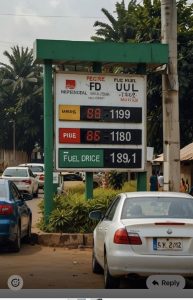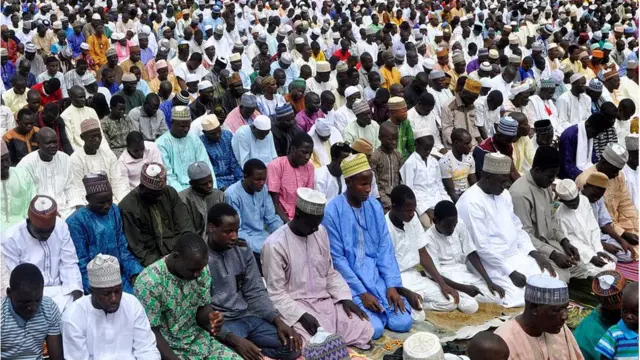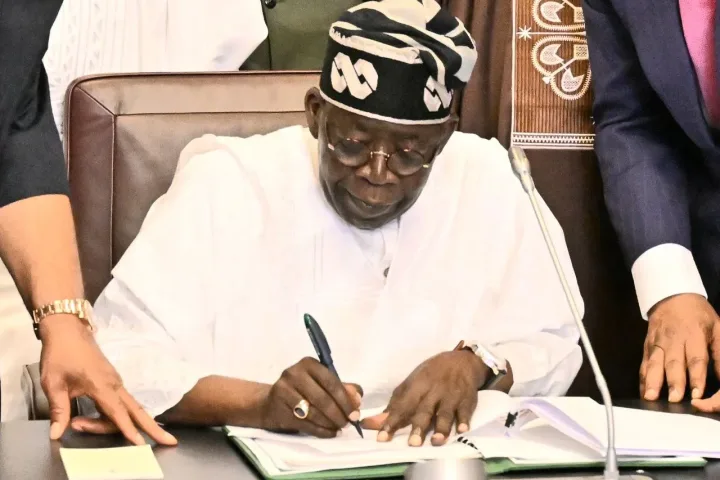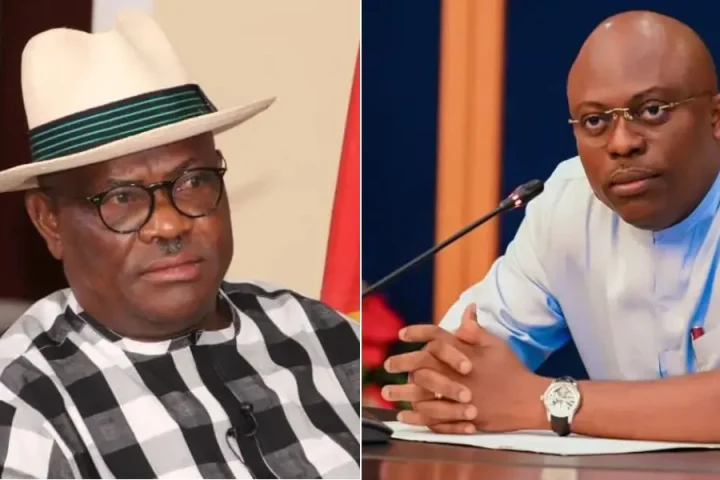According to ancient Greek philosopher Heraclitus, “The only constant thing in life is Change.” Unfortunately it comes most of the times with bitter experience.
The phobia for change is borne out of the fact that it comes most times with negative effect. Aside from that, it challenges the status quo, bringing comfort to some and discomfort to others.
Join our WhatsApp ChannelJust like change itself, the fear of change is also constant because humans love routine. Why do humans love routine? Because it makes them feel in control of their lives. And why not?, every human being would like to be able to predict and project into the future and plan ahead allotting the resources available to him in such a way as to derive the greatest benefit.
Unfortunately, when it comes to fuel price in Nigeria, uncertainty is the name of the game.
The regularity at which the pump price is adjusted and re-adjusted is not only alarming but has become embarrassing for a country that prides herself as one the biggest oil producers in the world and which is ranked 15th among world oil producing countries.
The only African country in the top 15 and by implication the biggest oil producing country in Africa ahead of Algeria and Angola that rank 16th and 17th in the world respectively.
The common man assumption is that citizens of oil producing countries should enjoy cheaper price in buying what they produce.
As It Was In The Beginning, So Shall It Be
But bitter experience in Nigeria has shown that such assumption holds no water, and Nigerians even as they lament, have gotten used to the uncertainties associated with pump price of fuel.
Tell an informed Nigerian that the President will address the nation on the first of January to welcome a New Year, on October 1st to mark the countries independent or May 29th to mark democracy day, and he will tell you for free some of the would be contents of the speech. One of them will be possibility of increase in pump price of fuel and possible increase in tax and tariff and VAT.
READ ALSO:Nigerians Tackle First Lady, Senate President Over Fuel Hike Comments
It is worthy of note that price of fuel has been increased from 1999 to 2024 a record 22 times.
Eight times under President Olusegun Obasanjo from N20 to N75 when he left in 2007 after two terms, four times under Presidents Yar’Adua and Goodluck Jonathan from reduced price of N65 per litre to N87 when President Goodluck Jonathan left in 2015, Seven times under former President Buhari and three times already in less than two years under President Bola Ahmed Tinubu.
If mathematically the longer you stay in office, the higher the number of possible times increase will take place, it implies that the current administration still has room for more increases despite holding the record of highest price hike of N1,000 per litre.

So it will be wrong to assume that there will be no further increases in future even with the coming on stream of Dangote Refinery and with our four refineries perpetually moribund.
Citizens Searching For Solution To A Hopeless Situation
Experts and non-experts alike and concerned citizens facing the hardship, have raised the alarm, complained, offered suggestion over the years but the solution has remained far-fetched so they resorted to seeking individual solution in line with survival instinct.
Compressed Natural Gas
The compressed Natural Gas (CNG) option is the talk of the town. The government itself says it is the way to go and has recently pumped money into acquisition of CNG vehicles.
The advantages include being environment friendly without emissions, low maintenance cost, engine longevity among other benefits. But for individuals wishing to convert their cars to CNG, it is understood that they might need to cough out about N1.8million to do that. How many have the luxury of doling out that for conversion?
Return To Bicyle Era In The 21St Century
Last year on the occasion of World Bicycle Day, the Federal Road Safety Corps (FRSC), Bayelsa Command, advised Nigerians to adopt the use of bicycles as a means of transportation because of its numerous benefits.
The Bayelsa Sector Commander, Usman Ibrahim, gave the advice during the awareness ride to commemorate World Bicycle Day in Yenagoa
Represented by Oiwoja Alagoa, Deputy Corps Commander, Mr Usman said that bicycle transport was cheaper and healthy for the physical well-being of the human body.
The Deputy Corps Commander said it was time to re-adopt the transportation system that had assisted human civilisation for ages.
The Commander further cited countries like Denmark, China, and Netherlands as countries where use of bicycles thrive. For the countries cited, their embrace of the bicycle may be purely for health benefits because cycling is a major exercise and not because they are forced by cost of fuel to go biking.
In our own case the hike in transport fare, whether for inter or intra-state movement as a result of hike in fuel has forced those who have no cars and depend on public transport to result to trekking long distances. Healthy or not, when adopted as a routine is a debate for another day.
Those who have cars but cannot afford to fuel them are perhaps the ones being encouraged to park them and pick up the bicycle for good.
This submission is certainly true and very apt at this time, but again do we have the facilities for people to ride bicycle in peace and not in pieces?
In the countries cited above, including neighbouring Benin Republic and Togo, provisions have been made by way of special route for those who choose to embrace the bicycle.
In our case, are we ready for the casualty, considering the impatience of our road users in a road that is shared by all?
Will our tendency to disobey rules suddenly disappear? Is the BRT lane dedicated for Rapid Bus Service in Lagos being obeyed?
Who will save the cyclist riding to and from work every day from the vicissitudes of the road?
For the retired who have no need to commute too often, the bicycle is good for healthy living. For those whose place of work is within exclusive estates, using the bicycle appears to be the ultimate solution to the present quagmire.
As for those who can neither trek nor afford bicycle, the only option is to keep enduring and smiling while doing so, after all the World Happiness Report, a publication of Sustainable Development Solutions named Nigerians as the 95th happiest people on earth.
Julius Okorie is Chief Sports and Entertainment Correspondent for Prime Business Africa. He began his journalism career with the Champion Newspaper and Sporting Champion and later moved on to Daily Independent and the Nation Newspapers. Okorie joined Prime Business Africa in 2024 bringing on board 20 years of experience in writing investigative news on Sports and Entertainment. His well researched and highly informative articles on Sports Business and general entertainment are followed by a wide range of audience.


















Follow Us